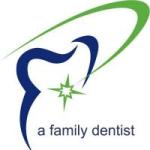It's important for overall health to choose a brush that gets your mouth clean and keeps it healthy. Toothbrush is the principal and most important instrument to clean teeth.
You know that market is flooded with so many types of toothbrush in various colors, type, shape and size. Some toothbrush brands promise fresh breath, deep cleaning and even teeth whitening, those makes people more confused, and make shopping of toothbrush challenge.
There are, however, some toothbrush basics that you need to know. Here are some tips about selecting proper toothbrush.
Size of Toothbrush
The best toothbrush head allow you easy access to all surfaces of your teeth. For most adults, toothbrushes head a half-inch wide and one-inch tall will be the easiest to use and the most effective. There are also larger toothbrush heads available, but they are difficult to use to clean certain areas, such as the sides and backs of your molars. The toothbrush should have a long enough handle so you can comfortably hold it in your hand. The best toothbrush is one that fits your mouth and allows you to reach all teeth surfaces easily.
Bristle variety of Toothbrush
This is the most important point in selecting toothbrush. There are so many varieties of bristle type ranging from hard, medium, soft and ultra soft. Some people use the hardest bristles as they believe that it can achieve a better clean, but these can be having a negative impact on their teeth and gums. It has been shown that the harder bristles can cause premature gum recession and wear facets (Abrasion, Toothbrush trauma) on the teeth. For these reasons we recommend using the soft bristles as they achieve the good result with minimum trauma to the teeth and gums. A soft-bristled brush is best for removing plaque and debris from teeth. The soft-bristled toothbrush will be the most comfortable and safest choice. They are easier on your gums. When you brush, you want to clean your teeth, not make your gums bleed. A toothbrush with hard bristles is more likely to cause bleeding gums. Depending on how vigorously you brush your teeth and the strength of your teeth, medium and hard bristled brushes could actually damage the gums, root surface, and protective tooth enamel. For even more tooth protection when you brush, be sure the bristles on the toothbrush you select have rounded tips. The thin bristles tips are able to enter and sweep food particles from along the gum line and between narrower gaps between the teeth. The ultra soft bristled toothbrush mainly used after gum surgery specially recommended by dentists.
Remember: The Softest the better.
Don't forget: After daily use, your toothbrush can lose its effectiveness; its bristles become hard and even become a breeding ground for germs, fungus and bacteria. For that reason toothbrush should be replaced 3 monthly. If you recently had a cold or infection, you may have transferred germs to your toothbrush so be sure to use a new toothbrush.
Don’t Miss the Dental Visits
Brushing teeth is an essential part of daily routine, but remember that regular dental visits are most important to the overall dental health. By visiting dentist twice a year for checkups and dental cleanings, and learning how to brush properly, you will definitely enjoy a healthy, beautiful smile for a lifetime.
At Dr. Bharat Katarmal Dental and Implant Clinic, Jamnagar, we aim to identify, treat, and educate our patients on the best oral hygiene techniques to help maintain their own oral health at home. If it’s been more than six months since your last check up, a call on 9714290071 to book an appointment for dental check up.
http://www.drkatarmal.com is clinic website.

 Comments (
Comments ( Category (
Category ( Views (
Views (